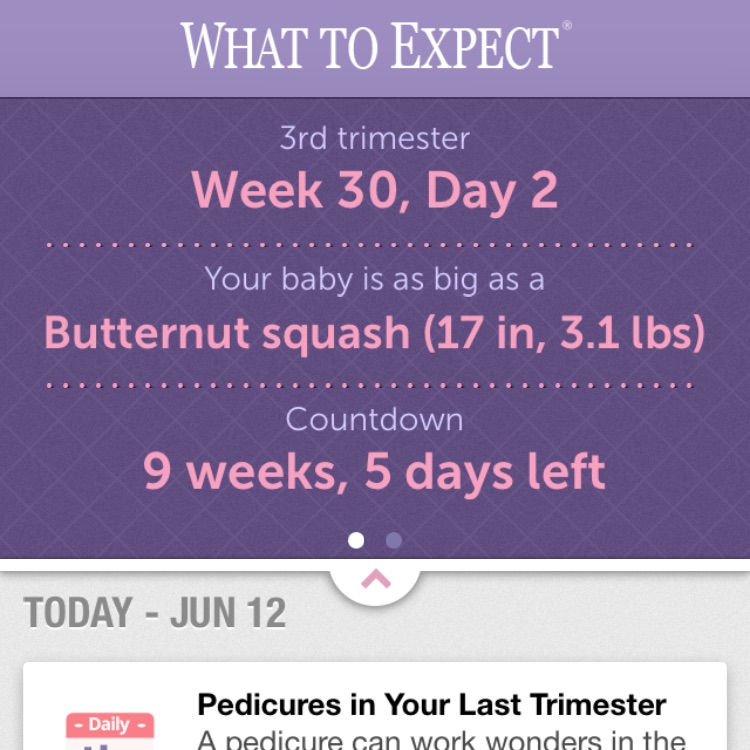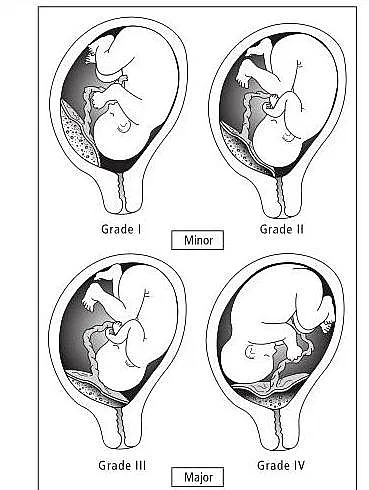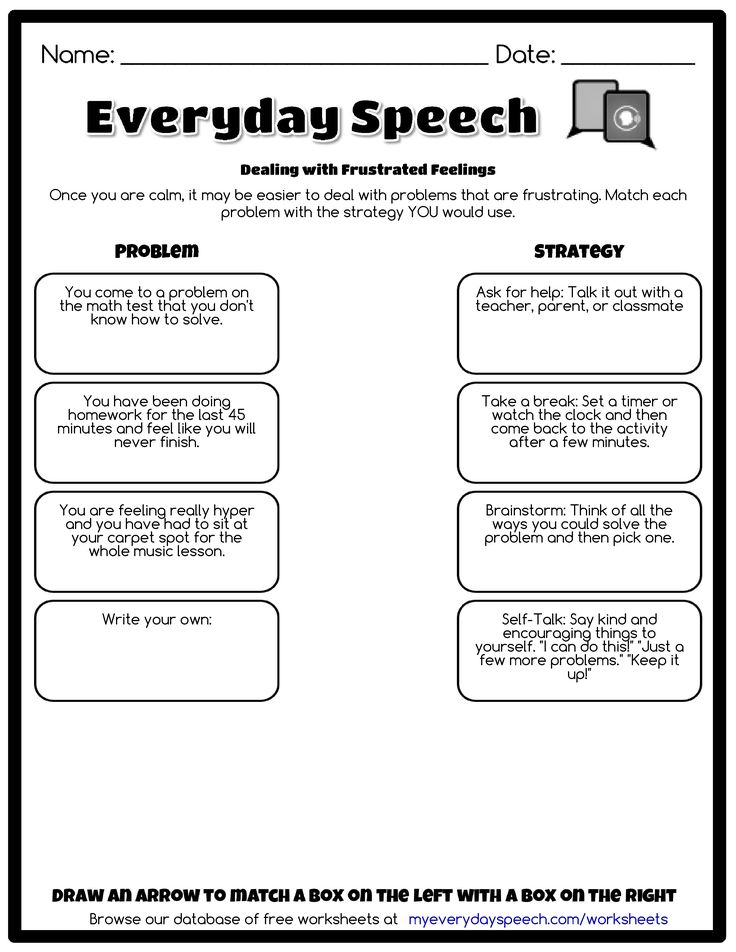What week starts the 2nd trimester
What To Expect, Development & Tests
What is the second trimester of pregnancy?
The typical pregnancy lasts about 40 weeks. It’s divided into three periods of time — the first, second and third trimester. Each trimester is roughly 14 weeks long. When you enter your second trimester, you are around 14 weeks pregnant. This middle trimester will last from week 14 to the end of week 27.
During your second trimester of pregnancy, you’ll start looking and feeling more pregnant. For many people, this is the best part of pregnancy because the morning sickness and fatigue of their first trimester fade into the past. Often, any anxiety that went with your first trimester also starts to diminish at this point. You’ll start to feel your fetus move by the end of this trimester, and you might begin to settle into your pregnancy and enjoy it more. Of course, it’s important to remember that pregnancy is different for everyone. Some people never experience negative symptoms like morning sickness in their first trimester. Others might continue to feel sick well into their second trimester of pregnancy.
How does my baby develop during the second trimester of pregnancy?
Your fetus will go through many changes during your second trimester of pregnancy. During this trimester, the fetus starts to look more like a child — with its facial features aligning, and its fingers and toes becoming well-defined. By month four, the fetus will actually have eyelids, eyebrows, eyelashes, nails and hair. The fetus will also be able to stretch, make faces and even suck on its thumb. You’ll soon be able to determine the sex of the fetus on an ultrasound — often around 20 weeks.
At this point, you might also start feeling the fetus move. The movement is often described as a flutter or similar to the feeling of having butterflies in your stomach. The fetus will be doing flips and movements throughout your second trimester. This first movement is called the quickening. If this isn’t your first pregnancy, you might feel the fetus move sooner.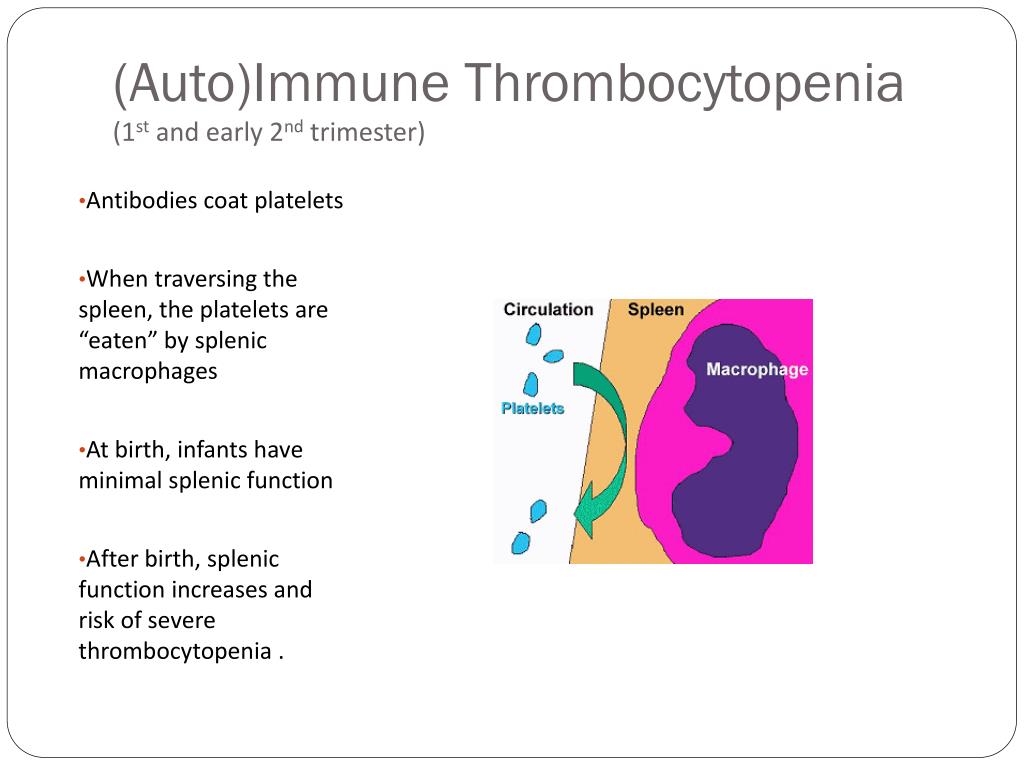
In the last few weeks of the second trimester, the fetus can also hear you. If you talk to your growing belly, you might notice movement in response.
If your baby was born at the end of your second trimester (premature birth), they would be likely to survive with intensive care.
What happens to my body during the second trimester of pregnancy?
The fetus isn’t the only one growing and changing during your second trimester. You'll notice several changes in your own body during this time. Your uterus — the place where the fetus grows during pregnancy — continues to stretch. This organ will expand throughout your pregnancy as the fetus gets larger. After pregnancy, your uterus will return to its pre-pregnancy size (picture an upside-down pear).
However, your uterus isn’t the only thing growing during the second trimester either. You’ll start gaining weight and might start developing the tell-tale enlarged belly of a pregnant person. Don’t worry if this takes time to develop. Everyone is different, and no two bodies will look exactly the same during pregnancy.
Everyone is different, and no two bodies will look exactly the same during pregnancy.
You might also feel or develop a few new symptoms of pregnancy during your second trimester, including:
- An increased appetite.
- An achy body.
- Some swelling in your hands, feet and ankles.
- Some stretch marks.
If you experienced morning sickness during your first trimester, it’s likely fading away now. The uncomfortable symptoms of early pregnancy (nausea and extreme fatigue, for example) don’t typically continue into your second trimester. This is one reason why many people consider their second trimester of pregnancy to be the best part of pregnancy.
What tests will I have during the second trimester of pregnancy?
Throughout your pregnancy, your healthcare provider will order various tests to check on your health and the health of your developing fetus. During your second trimester, you’ll typically be screened for a few different things, including the Rh factor of your blood and the condition gestational diabetes.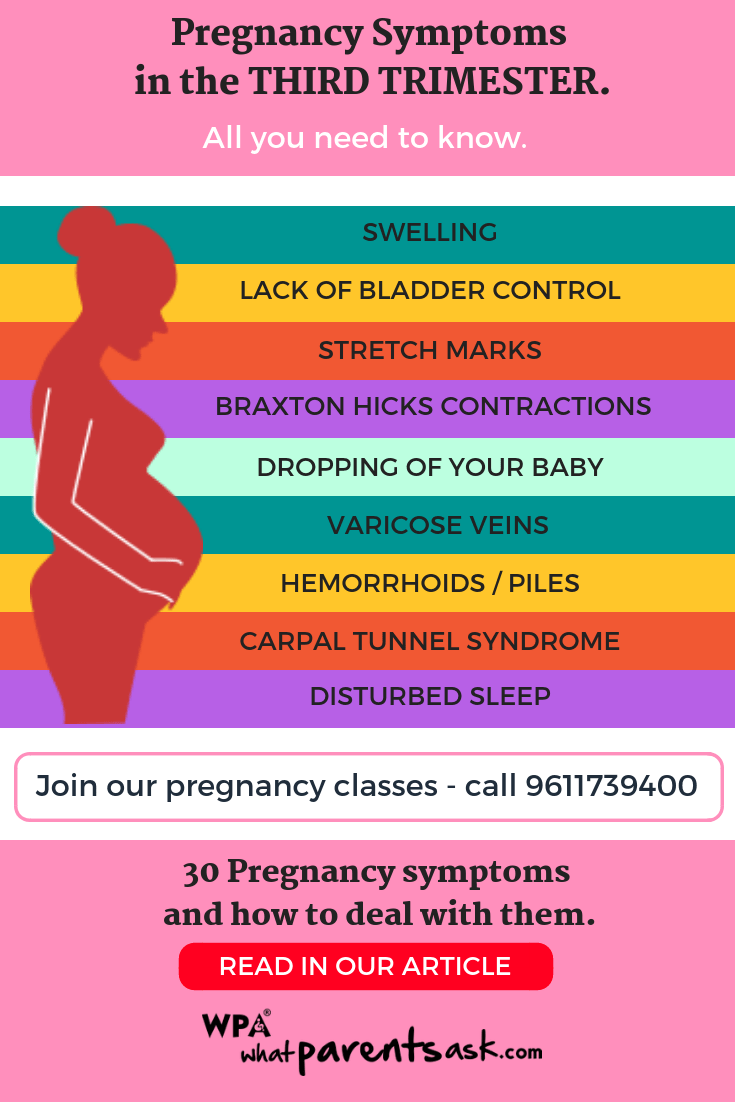 You'll also have an ultrasound during your second trimester. This ultrasound is probably best known for telling new parents the sex of the fetus, but it’s mainly used to look at their anatomy.
You'll also have an ultrasound during your second trimester. This ultrasound is probably best known for telling new parents the sex of the fetus, but it’s mainly used to look at their anatomy.
One thing your provider will test for during your second trimester is your Rh factor. Rh factor is an antigen protein found on most people’s red blood cells. If you don’t have the protein, then you are Rh- (negative). You’ll be given an injection of Rh immune globulin (called Rhogam®) during the 28th week of your pregnancy to prevent the development of antibodies that could be harmful to the fetus. You’ll also be given an injection of Rhogam® after delivery if your fetus has Rh+ (positive) blood.
If you are Rh-, you may also receive this injection if you:
- Are having an invasive procedure (such as amniocentesis).
- Had an abdominal trauma.
- Had any significant bleeding during pregnancy.
- Need to have the fetus turned in your uterus (due to breech presentation).

Your provider will also order a test called the oral glucose screening test. This is usually done at the end of your second trimester — often between weeks 24 and 28. The purpose of the glucose screening test is to see if you are developing gestational diabetes. During the test, you’ll be given a syrup-like drink. The healthcare provider administering this test will give you a set amount of time to drink the entire bottle, then you'll be asked to wait nearby for one hour. After the hour is over, you’ll have your blood drawn. Your healthcare provider will then go over your test results with you.
What do I need to prepare or plan for during the second trimester of pregnancy?
There are many things you can start thinking about during your second trimester of pregnancy to prepare for your new family member. Many of these things will center around conversations that you should start having at this point in your pregnancy. It’s good to discuss the type of birth you hope to have and learn about the different ways your child might be born.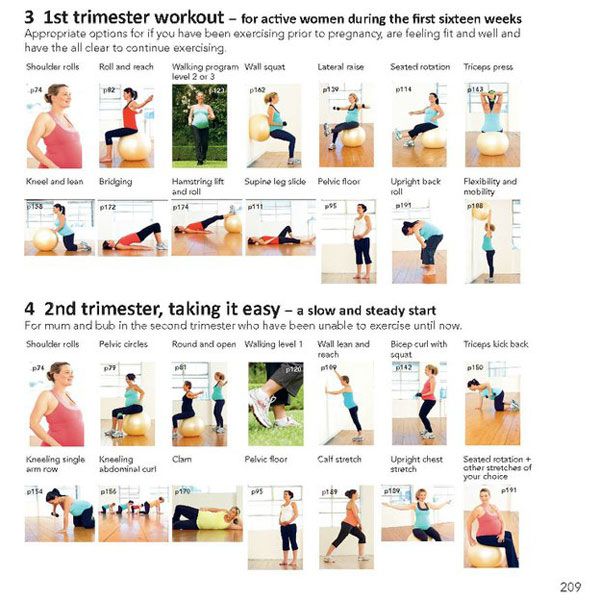
A few ways your baby could be born can include:
- Vaginal birth (this could be medicated so that your pain is decreased, or unmedicated).
- Assisted birth (you might need tools like forceps or a vacuum to help with your delivery).
- Cesarean section (C-section).
You can learn more about these types of birth through your own research or in a birth class. This is the time for you to look into educational classes about birth, breastfeeding and parenting of your newborn. These classes can help prepare you for your new role as a parent. Ask your healthcare provider for more information on classes and groups you can join at this point in your pregnancy.
This might also be a good time to take a tour of the hospital where you’ll give birth. A hospital tour is a great way to get familiar with the place where your baby will be born. During the tour, you’ll learn where you should go when you first get to the hospital during labor and what will happen afterward.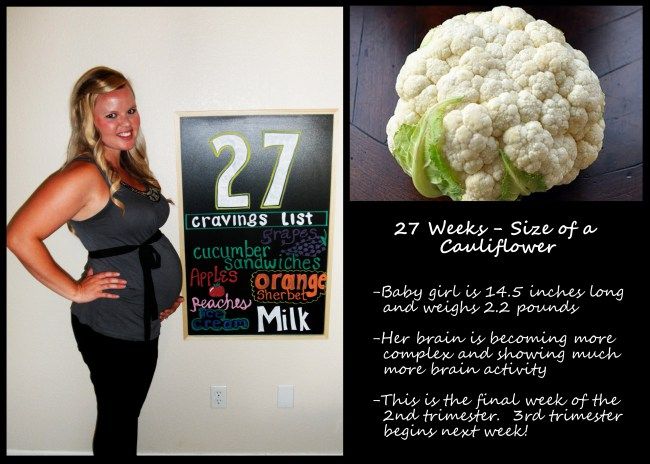 You’ll typically get to see hospital rooms and learn more about the hospital staff, as well.
You’ll typically get to see hospital rooms and learn more about the hospital staff, as well.
What should I be doing during the second trimester of pregnancy to stay healthy?
Throughout your second trimester, you should continue maintaining a healthy lifestyle. Try to exercise for about 20 minutes a day. Regular exercise is good for you and your developing fetus. Some of the safest types of exercise include walking and swimming; though, there are many other options you can try. Talk to your healthcare provider about the type of exercise you'd like to do beforehand just to be safe. You’ll want to avoid contact sports and activities where you could fall, as these could endanger your pregnancy.
It’s also a good idea to do kegel exercises throughout your entire pregnancy. These exercises will help strengthen your pelvic floor muscles.
Apart from exercise, you should continue eating a healthy diet, taking your prenatal vitamins and attending each of your appointments.
When should I call my doctor during the second trimester of pregnancy?
You’re the person who knows your body the best. If you ever feel like something is wrong, it’s completely OK to reach out to your healthcare provider. It’s also a good idea to call your healthcare provider right away if you have:
- Unusual or severe cramping or abdominal pain.
- Noticeable changes in how much the fetus moves (after 28 weeks of gestation). If you don’t count six to 10 movements in one hour or less, call your provider.
- Difficulty breathing or shortness of breath that seems to be getting worse over time.
You should also reach out to your provider right away if you start having any signs of premature labor. Talk with your provider if you have any of the following signs of premature labor:
- Regular tightening or pain in your lower abdomen or back that occurs more than four times in an hour.
- Any bleeding in your second or third trimester of pregnancy.

- Any fluid leakage. Vaginal discharge often increases as part of the hormonal changes in pregnancy.
- Pressure in your pelvis or vagina.
Second trimester | Pregnancy Birth and Baby
Second trimester | Pregnancy Birth and Baby beginning of content5-minute read
Listen
The second trimester of pregnancy is a time when many women will feel energised and well. You will become visibly pregnant, but you won’t be so heavy that getting around is difficult. This is also a time of rapid growth and development for your baby, and you may find yourself busy with health checks and planning for the birth.
What is the second trimester?
Trimesters are a helpful way to think about pregnancy because the changes that happen to you and your baby fall into 3 broad categories of early, middle and late pregnancy, as reflected in the first, second and third trimesters.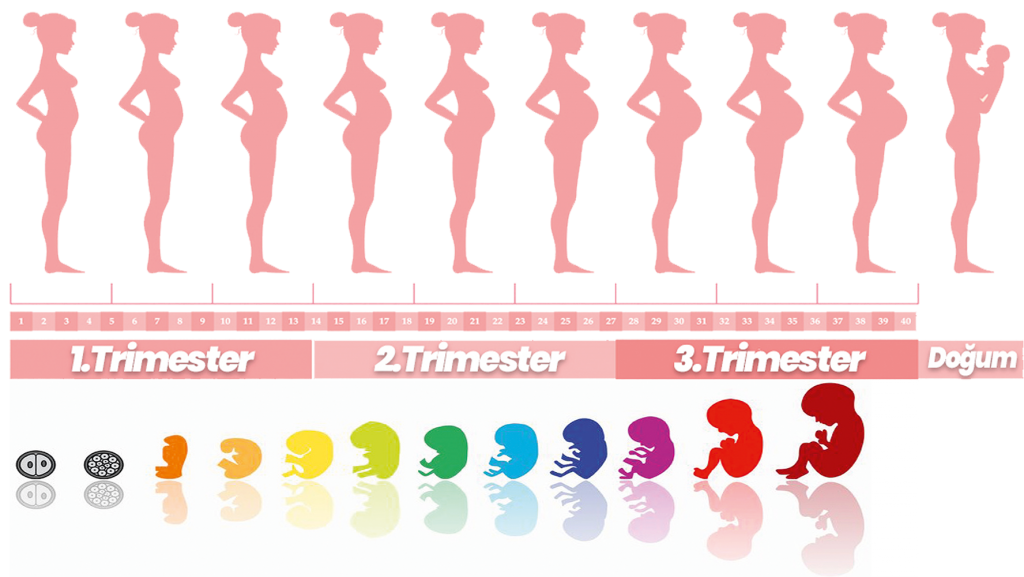
The second trimester represents the middle part of your pregnancy, from weeks 13 to 26. For many women, one of the best things about this trimester is that nausea might begin to settle.
What happens to your body?
Your body will undergo some major changes during the second trimester. Your uterus will grow, and you may feel some discomfort or aches as uterine ligaments stretch. You will start to feel your skin stretch around your belly and your breasts, which may cause mild itching. Some women get stretch marks in these areas, which tend to fade over time.
Although your baby weighs less than a kilo, your blood volume will increase to meet the demands of all the growth happening inside you, which will mean you will gain some additional weight.
Your emotions
Pregnancy can be a wonderful and exciting time, but it’s also important to expect to feel some occasional days of heightened anxiety or low mood.
Sometimes one or both parents experience difficult emotions during pregnancy, such as being worried about the birth or about coping as a parent.
Feelings of anxiety are not uncommon, and some women will experience symptoms of a condition called anxiety disorder. Antenatal depression is a mood disorder that includes intense emotional changes beyond those you might expect during pregnancy.
If you are worried about feelings of anxiety, low mood or depression, you could:
- see your doctor, obstetrician, child health nurse or midwife
- phone Pregnancy, Birth and Baby on 1800 882 436
- call PANDA - Perinatal Anxiety & Depression Australia on 1300 726 306
What happens to the baby?
During the second trimester, your baby will grow from being around 7.5cm, and weighing 30 grams in week 13, to around 23cm and 820 grams at week 26.
Your baby will be able to move freely within the amniotic sac in your uterus. By about week 19 (or sooner if this isn’t your first pregnancy), you may feel this movement – as a faint tickling or fluttering. During these 3 months, your baby’s organs will continue to develop and the liver, pancreas and kidneys all start to function.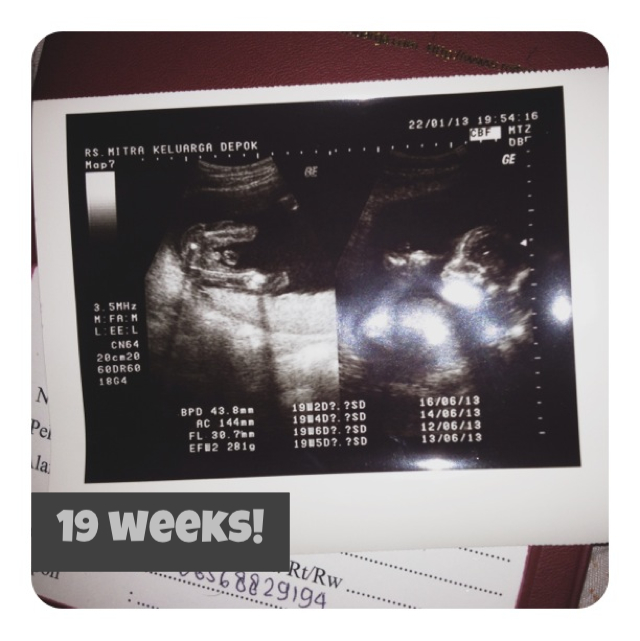 This is also the time when babies might start to suck their thumb. By week 20 your baby can hear sounds, including the sound of your heartbeat, and they are learning to recognise your voice, although the ears are not yet fully formed.
This is also the time when babies might start to suck their thumb. By week 20 your baby can hear sounds, including the sound of your heartbeat, and they are learning to recognise your voice, although the ears are not yet fully formed.
What can you expect at your antenatal visits?
Regular antenatal visits are an important part of staying healthy and making sure your baby is healthy. How often you see your health professional will depend on your personal circumstances, but for many women, visits will be every 4 to 6 weeks.
At all visits during your second trimester, you will have your blood pressure checked, and your hands and feet will also be checked for swelling. You might be weighed, have blood taken for tests and have your urine checked.
Your doctor or midwife will check your abdomen to monitor your baby’s growth and will listen to your baby’s heartbeat. If you didn’t have an ultrasound in your first trimester, you may be offered one at around 18 to 20 weeks.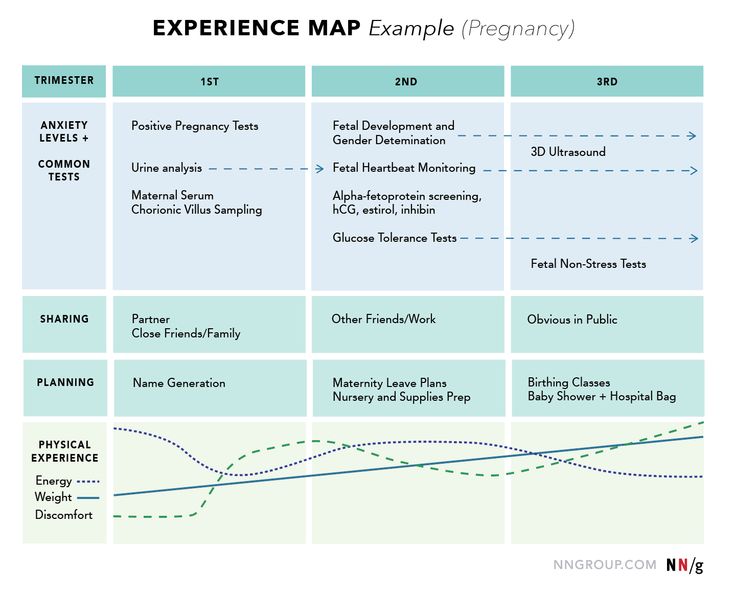
How to stay healthy
Eating well and staying active is as important as ever during pregnancy - it's good for your physical and emotional health, and good for your baby too. Light-to-moderate exercise in pregnancy is usually safe: consider walking, swimming, yoga and stationary cycling in your second trimester. High-impact exercise and activities where there is a risk of falling, getting hurt (especially around the stomach) or overheating are not recommended.
Your choice of food during your pregnancy is also important – but that doesn’t mean ‘eating for two’. What you eat during your pregnancy has been shown to affect how your baby grows as well as your baby’s health later in life.
Things to consider in the second trimester
Parental leave – discuss with your partner and then with your employer:
- How will you share the care of your baby with your partner (or other family members)?
- When do you plan to start your leave?
- When you intend to return to work?
- When is a good time to share your pregnancy news with your employer?
- Will your role at work change after your baby is born?
Antenatal classes:
- Ask your midwife or doctor about antenatal education available in your area.
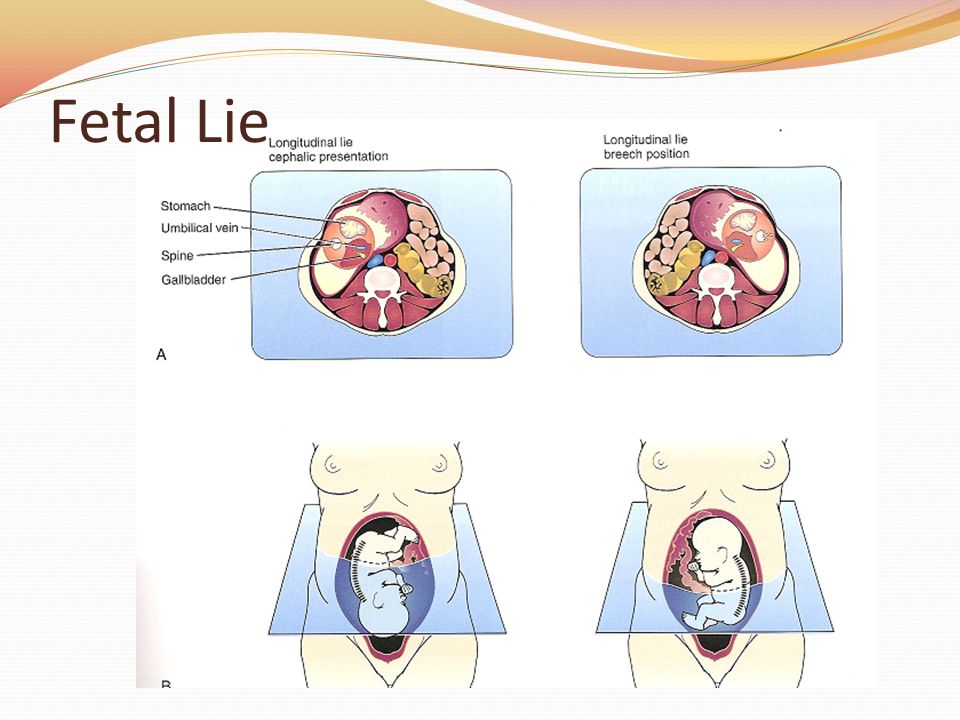
- Consider going to classes together with your birthing partner – not only will you learn a lot about how to prepare for labour, you’ll meet people who will share their experience of becoming parents.
Your pregnancy journey
Follow your pregnancy week-by-week to find out how your baby is growing and what is happening to your body.
Sources:
NSW Health (Having a baby), Royal Women's Hospital (Pregnancy and birth), Raising Children Network (Pregnancy week-by-week), Women's and Children's Health Network (The first 3 months of pregnancy: the first trimester), Queensland Health (How much weight will I gain during pregnancy?), Healthy WA (Emotional health for parents during pregnancy and after the birth)Learn more here about the development and quality assurance of healthdirect content.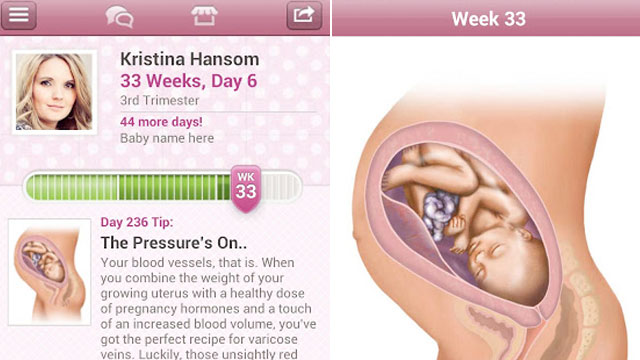
Last reviewed: May 2021
Back To Top
Related pages
- Pregnancy week-by-week
- Third trimester
- First trimester
Need more information?
Second trimester of pregnancy: for men | Raising Children Network
Tiredness and morning sickness often ease up in pregnancy’s second trimester. Our guide explains how this can be a special time for men and their partners.
Read more on raisingchildren.net.au website
Pregnancy changes video: second trimester | Raising Children Network
In this video mums and dads describe physical and emotional changes in the second trimester of pregnancy. A midwife says tiredness and nausea might ease.
Read more on raisingchildren. net.au website
net.au website
Exercise in second trimester: dads guide | Raising Children Network
How much exercise is safe for pregnant women in the second trimester? Light to moderate exercise is usually OK. This Dads Guide explains and has tips.
Read more on raisingchildren.net.au website
Pregnancy second trimester: men’s feelings | Raising Children Network
It’s pretty common for men to feel pregnancy is happening at a distance. Even in the second trimester, it might not feel real. Read more in our Dads Guide.
Read more on raisingchildren.net.au website
Pregnancy at week 13
At week 13 of pregnancy, you officially enter your second trimester and hopefully any morning sickness has eased off.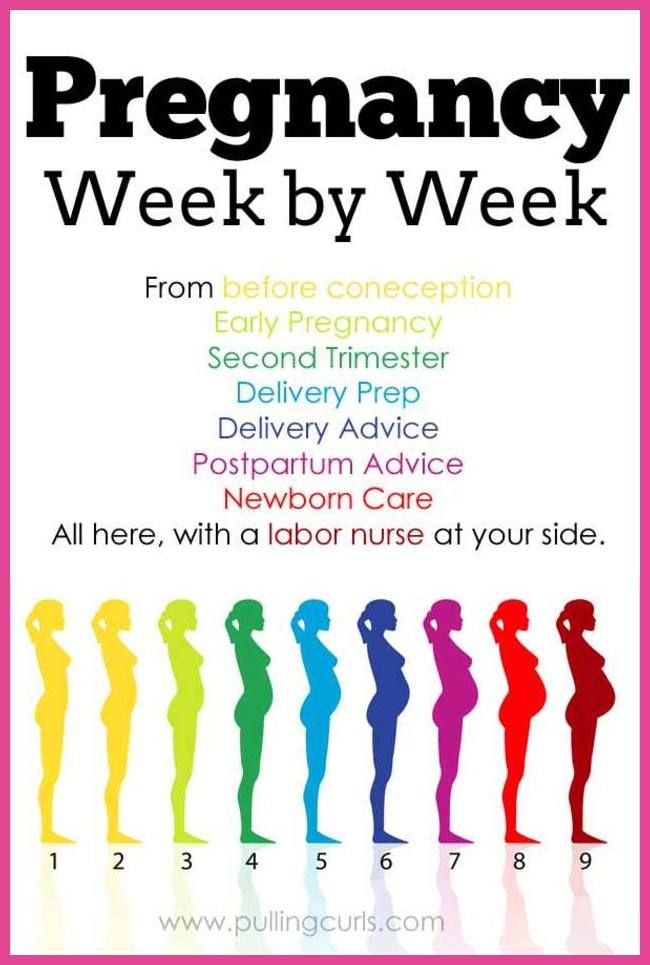
Read more on Pregnancy, Birth & Baby website
Pregnancy at week 25
As you are approaching the end of the second trimester, you might be starting to feel a bit uncomfortable as your baby continues to grow.
Read more on Pregnancy, Birth & Baby website
Late term abortion | Marie Stopes Australia
Having a late term abortion, also known as a second trimester abortion, is never easy. Given the often exceptional circumstances and more complex procedure required they require special care and support. We specialise in later term abortions in most states, in line with legal gestation limits.
Read more on MSI Australia website
Maternal screening - Pathology Tests Explained
Why and when to get tested for maternal screening
Read more on Pathology Tests Explained website
Pregnancy at week 14
By week 14, your baby’s organs have formed, their face is becoming more recognisable, and you may be feeling more energetic.
Read more on Pregnancy, Birth & Baby website
Pregnancy at week 16
At week 16, you might begin to feel your baby moving, while hormonal changes may be affecting your libido.
Read more on Pregnancy, Birth & Baby website
Disclaimer
Pregnancy, Birth and Baby is not responsible for the content and advertising on the external website you are now entering.
OKNeed further advice or guidance from our maternal child health nurses?
1800 882 436
Video call
- Contact us
- About us
- A-Z topics
- Symptom Checker
- Service Finder
- Linking to us
- Information partners
- Terms of use
- Privacy
Pregnancy, Birth and Baby is funded by the Australian Government and operated by Healthdirect Australia.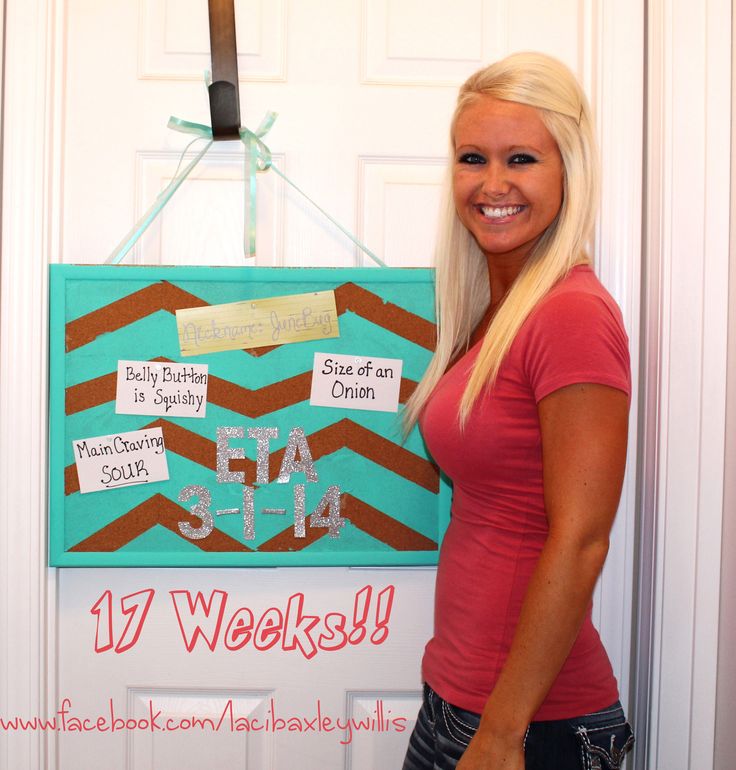
Pregnancy, Birth and Baby is provided on behalf of the Department of Health
Pregnancy, Birth and Baby’s information and advice are developed and managed within a rigorous clinical governance framework. This website is certified by the Health On The Net (HON) foundation, the standard for trustworthy health information.
This site is protected by reCAPTCHA and the Google Privacy Policy and Terms of Service apply.
This information is for your general information and use only and is not intended to be used as medical advice and should not be used to diagnose, treat, cure or prevent any medical condition, nor should it be used for therapeutic purposes.
The information is not a substitute for independent professional advice and should not be used as an alternative to professional health care. If you have a particular medical problem, please consult a healthcare professional.
Except as permitted under the Copyright Act 1968, this publication or any part of it may not be reproduced, altered, adapted, stored and/or distributed in any form or by any means without the prior written permission of Healthdirect Australia.
Support this browser is being discontinued for Pregnancy, Birth and Baby
Support for this browser is being discontinued for this site
- Internet Explorer 11 and lower
We currently support Microsoft Edge, Chrome, Firefox and Safari. For more information, please visit the links below:
- Chrome by Google
- Firefox by Mozilla
- Microsoft Edge
- Safari by Apple
You are welcome to continue browsing this site with this browser. Some features, tools or interaction may not work correctly.
Second trimester of pregnancy (from 13 to 28 weeks)
The beginning of the second trimester is traditionally considered one of the calmest. Walk more. Walking is very helpful. Sit down to rest only when you are tired. Movement in the fresh air improves the supply of oxygen to the fetus, which is very necessary for its normal development.
Nausea disappears, appetite improves. Do not eat a lot of salty, refuse marinades, smoked meats, if you have not done this before. The increased need of the child's body for proteins and vitamins begins. The daily diet should include meat or fish (boiled or stewed), dairy products, especially cottage cheese, eggs. Do not forget about vegetables, fruits, greens. An excellent source of vitamin C is sauerkraut (rather than salted) cabbage. Salads from carrots, cabbage, beets, apples, green radish should be on your table every day.
At 17-20 weeks you will feel your baby's first kicks. From them you can determine how comfortable the baby feels. Intense tremors are a signal of lack of oxygen. Maybe you haven’t walked for a long time or, on the contrary, you are engaged in hard physical labor. Get out into the fresh air or lie down to rest and you will immediately feel how the child has calmed down.
But the lack of movement is an alarm. See a doctor immediately!
The fetal need for calcium sharply increases - intensive growth of the skeleton has begun.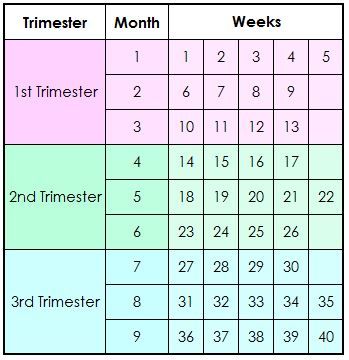 If you don't have enough free calcium in your body right now, you could lose your teeth. To prevent this from happening, start taking calcium supplements in consultation with your doctor.
If you don't have enough free calcium in your body right now, you could lose your teeth. To prevent this from happening, start taking calcium supplements in consultation with your doctor.
At this time, toxicosis of the second half of pregnancy may occur, the child suffers greatly from it. Therefore, if the doctor suggests hospitalization, do not refuse. Toxicosis can, if not be avoided, then at least reduce its manifestations. Be sure to follow your diet. Completely exclude salty, smoked, fried, spicy, canned food, chocolate. Do not eat a lot of grapes and drink fresh milk. Limit flour and rich products. As before, your diet should include boiled meat and fish, oatmeal and buckwheat porridge, vegetables and fruits
Periodically, once a week, check for fluid retention in the body. It is allowed to release liquid 200-300 ml less than what was drunk. If little urine is released, this is a signal of latent edema and the onset of toxicosis.
It is very good if you can measure your blood pressure at home.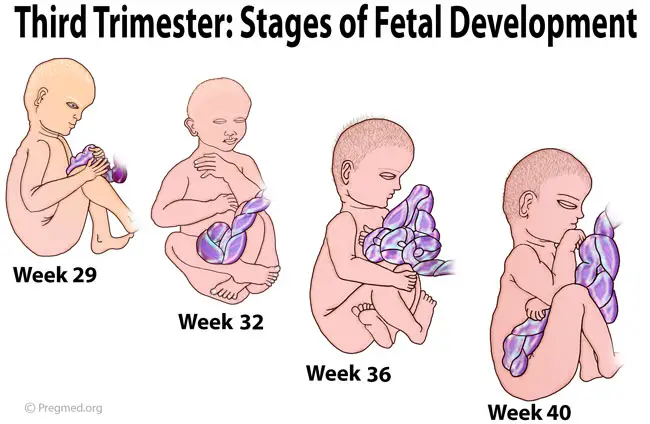 Show the results of measurements at the next visit to the doctor. Both high and too low pressure should alert. With low pressure, blood sluggishly crosses the placenta, and the baby does not receive enough nutrients.
Show the results of measurements at the next visit to the doctor. Both high and too low pressure should alert. With low pressure, blood sluggishly crosses the placenta, and the baby does not receive enough nutrients.
Do not neglect blood tests - it is important not to miss the development of anemia. In this case, you will be prescribed iron supplements and multivitamins. The diet should include beef liver, tomato juice, buckwheat porridge, apples, preferably Antonovskie (they contain more iron than other varieties).
Women who are at risk of giving birth to a child with a genetic pathology (those who have severe hereditary ailments in their families), as well as women over 35 years old (they have an increased likelihood of having a child with Down syndrome) are referred for a consultation by a geneticist.
In case of a normal pregnancy at 20-22 weeks of pregnancy, a second scheduled ultrasound examination is prescribed.
Second trimester of pregnancy | Chicco.
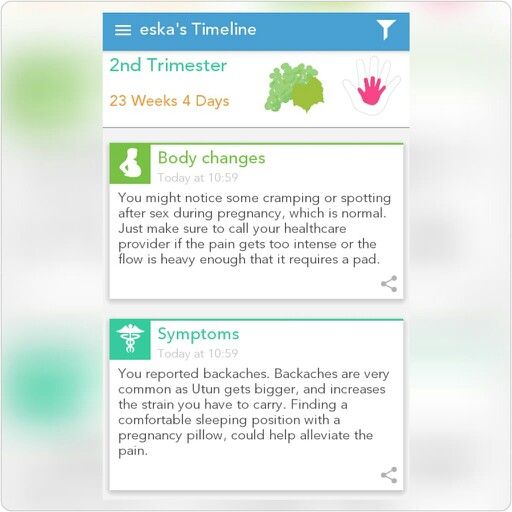 ru
ru Russian
In Attesa
Tips to help you prepare for the second trimester of pregnancy
When does the second trimester of pregnancy begin?
The second trimester occurs from the 4th to the 6th month of pregnancy, namely from the 14th to the 27th week.
The most common physiological changes in the body and typical complaints
For a future mother, the second trimester is usually the calmest stage of pregnancy, when the manifestations of toxicosis disappear. During this period, a woman's pregnancy becomes noticeable, and her body continues to change. What changes occur in the body in the second trimester and what sensations can they be accompanied by?
- Abdominal and breast enlargement : The abdomen grows as the uterus enlarges. The chest is also slowly but surely increasing.
- Skin changes : skin may darken due to increased production of melatonin; this is most noticeable in the areolas of the nipples, and a dark vertical line (linea nigra) may appear on the abdomen.
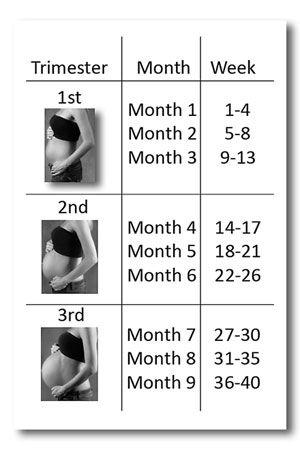 All these changes are temporary and after childbirth, as a rule, disappear.
All these changes are temporary and after childbirth, as a rule, disappear. - Leg cramps and pain : in this case, it may be advised to stretch the calf muscles before going to bed, drink more water and do not forget about physical activity; exists special exercises that can be done during pregnancy . It is also recommended to wear comfortable shoes and avoid tight, squeezing socks.
- Back pain : back pain during pregnancy due to poor posture due to weight gain and belly growth.
Weight in the second trimester
Weight gain becomes more noticeable from the 4th month: in the second trimester, the rate of weight gain increases, and then decreases in the third trimester, when weight gain is mainly due to active growth of the fetus . As a rule, at this stage, weight gain is 300-500 g per week, but this is a very individual indicator and may vary.
Diet of a pregnant woman in the second trimester
The general recommendation is to adhere to the principles of a healthy and balanced diet: eat small portions, but often, prefer light meals, consume as much dietary fiber as possible and drink plenty of water to maintain optimal water balance.